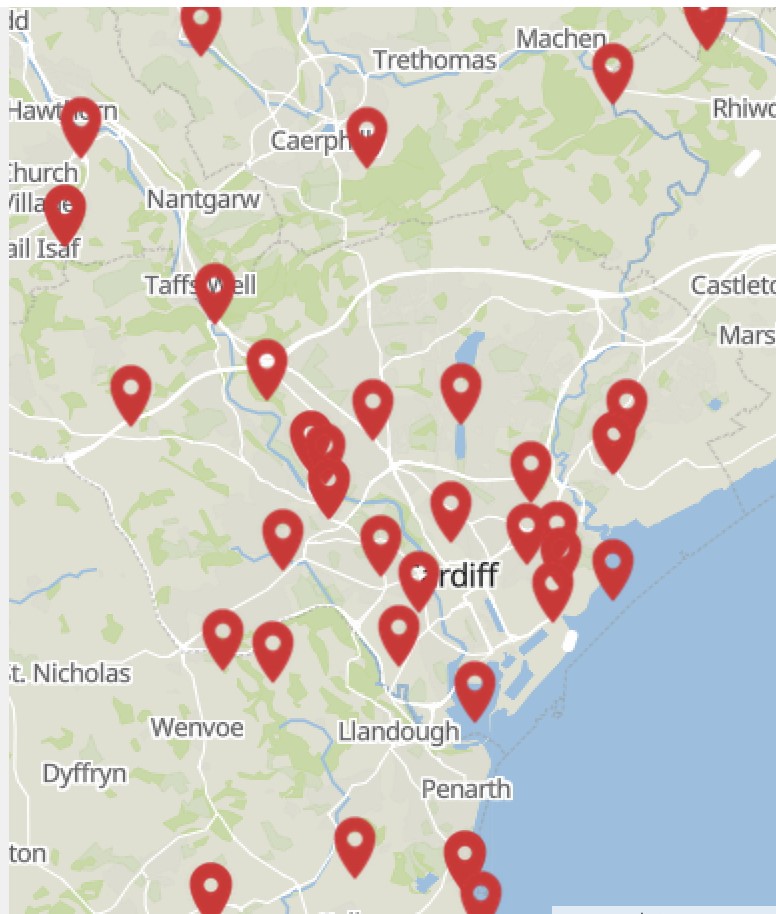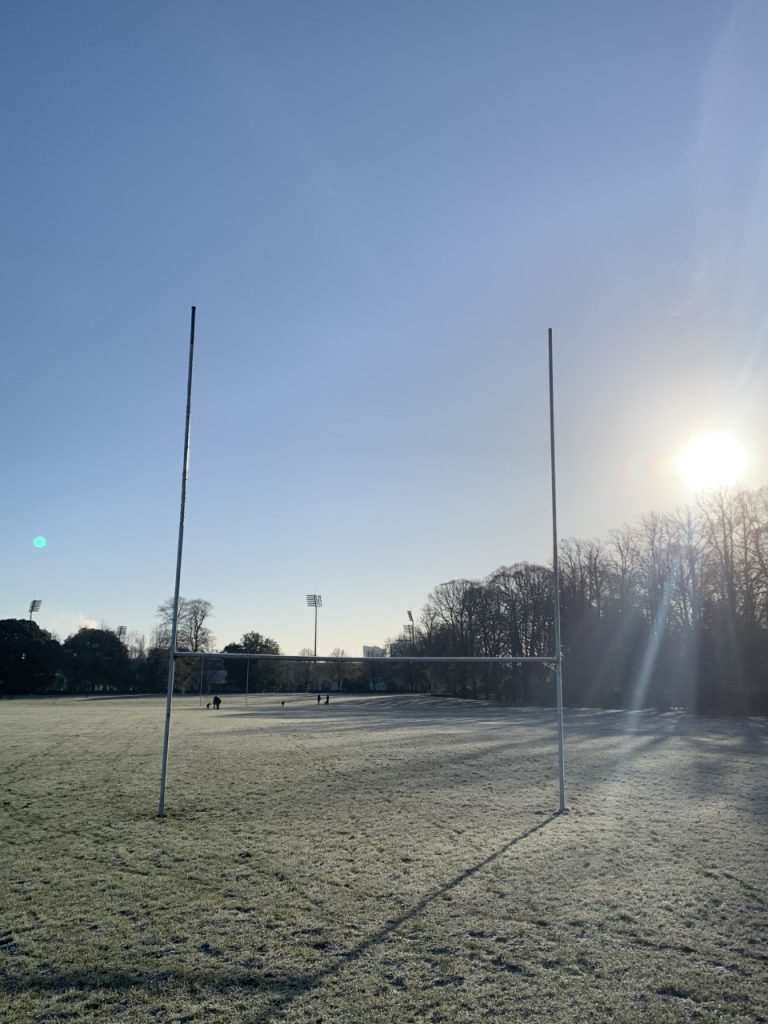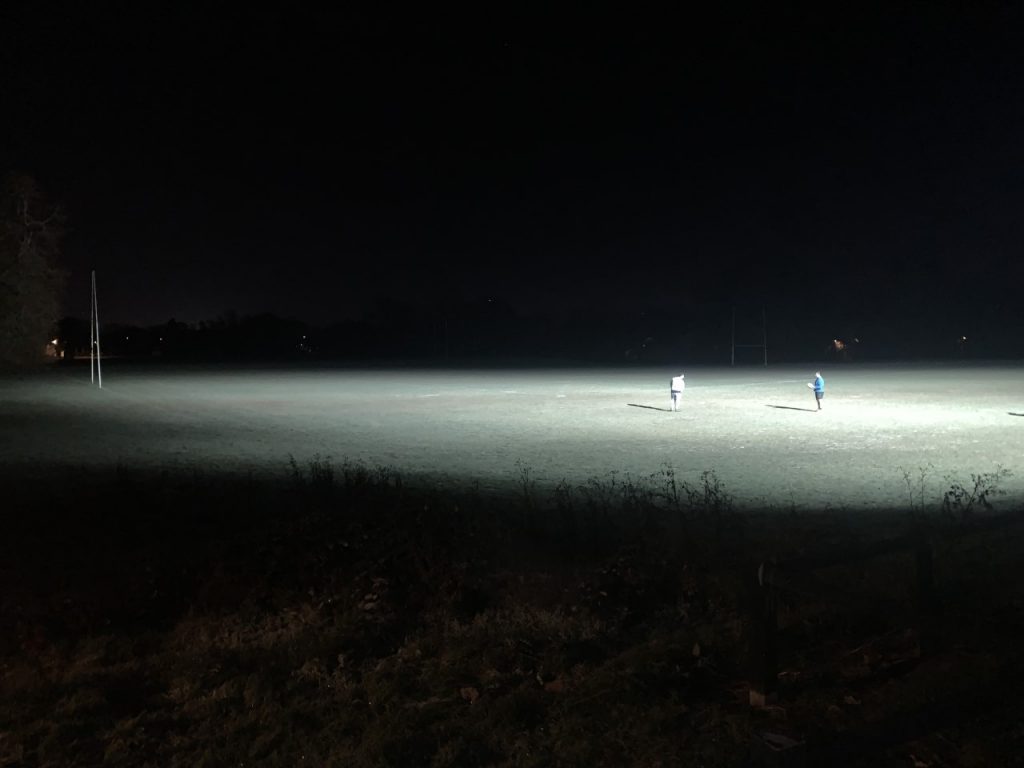A shortage of players, a surfeit of clubs and league restructuring has led to tens of games being called off on a weekly basis
GRASSROOTS rugby in Wales is facing a crisis.
Fixtures across leagues up and down the country are being called off every weekend due to clubs being unable to raise a team.
As of the first weekend of December, it was estimated that around 160 games had been called off just three months after this season began in early September.
Missed fixtures mean clubs lose money from bar takings in their clubhouses, adding to the financial hardship facing them because of the cost-of-living crisis.
There is no incentive for teams struggling for numbers to fulfil fixtures as the opposition side, who can field a team, don’t receive the match points. This means that the game is rescheduled for later in the season, leading to possible fixture congestion.
Ex-Wales international Lee Jarvis is head coach of his local side, Rhydyfelin RFC. The club ply their trade in League 1 East Central. Jarvis’ side have had five games cancelled already this season, playing just four league games.
“It’s been difficult,” said Jarvis, who won a Welsh Premiership title as Merthyr coach.
“I’ve been involved in rugby for a long time, and this is probably the most difficult season I’ve ever had with the games being called off.
“We’ve had five league games called off this year, and we’ve had a District Cup game called off as well. From January to May we have got to re-arrange 18 games, and that’s with the Six Nations break in between.
“At the moment it’s so easy to call a game off because sides aren’t getting points deducted from them and the side that doesn’t want to call it off aren’t getting any points from it.
“It’s pointless deducting points from the team that doesn’t want to play because there’s no relegation so I would strongly urge the WRU to give the side that doesn’t call it off the four or five points so that the game doesn’t have to be re-arranged.”
There are well over 200 WRU affiliated clubs in Wales, a country with a population of approximately 3.1 million people, which begs the question as to whether Wales has too many clubs for its player pool.
Huw Davies is secretary of Clwb Rygbi Cymry Caerdydd (CRCC), a club which attracts Welsh speakers from across Cardiff and beyond. CRCC have had no problems in fielding a team this season but have been affected by other sides not being able to raise a team.
“I do think there are too many clubs,” said Davies.
“It would be wrong for me to pick on a particular region, but I played rugby in Cardiff for 20 years and when you go the valleys for instance, you’d play one club and the next club is about 50 yards down the road.
“It’s not a judgement because in the valley towns the rugby clubs are the hub of the town. They play an important role and if local clubs were to merge it could have a catastrophic effect on the community.”

The pandemic played a part in teams losing players. Clubs went 18 months without stepping onto the field and inevitably some players gave up during this time.
“If you look at the classic dynamic of any first team, there’ll be a smattering of younger players and smattering of older players,” explained Davies
“A lot of the older players who had two seasons off due to Covid may have given up and thought there’s no point in restarting now.
“I’m hoping the player shortage is a short to medium term problem post-Covid. In, say, three to five years hopefully the youth team players will come through and regenerate these clubs.”
A league restructure in recent seasons has also proved controversial. The aim of the restructure was to reduce travelling distances for clubs, but in some cases this has led to mismatches, with one-sided games between clubs who had previously been divisions apart now finding themselves in the same league.
Richard Dighton played for several grassroots clubs in the Cardiff area before other commitments meant he had to give up. He saw first-hand the damage the restructure did to some clubs.
“I imagine my story is fairly typical,” explained Dighton, who played prop for Cardiff Internationals and Old Penarthians RFC.
“I met a girl and found I didn’t have as much time to commit to playing on the weekends. My missus then got pregnant and I packed it in as it wasn’t fair on her for me to have most Saturdays busy for rugby.
“While I was playing they restructured the leagues so you played against local sides regardless of what level they were playing at previously.
“It was so dangerous and it led to some absolute pastings, two clubs folded in that season alone.”
Martin Hole’s Cardiff Saracens team play in League 5 East Central, one of the lowest leagues in the country. His side has benefited from the restructure, but this means that some teams aren’t always willing to play them, which leads to games being cancelled.
“We were quite lucky with the restructure – we’ve been pretty decent in this league and had one of the longest winning streaks in the union,” he said.
“We go into games knowing we could win by over 50 points, and you think that’s maybe why the opposition don’t want to turn up. Because who wants to do that?
“There’s a handful of teams in our league who know they are going to lose by 50 points when they play the top half teams in our league.
“Even though there was no promotion for a few seasons they should have done something just to keep it equal.”
With the grassroots structure in Wales having unbalanced leagues, too many clubs for its player base and battling the post-pandemic world, there are concerns over whether it can continue in its current guise.

Jeff Cruise has been involved in grassroots rugby for decades with his club Llandaff North and is worried for the game’s future.
“There’s a general apathy around rugby now,” said Cruise, who coaches the club’s youth and senior teams.
“I call it the ‘PlayStation generation’. People just aren’t as interested or committed as they used to be.
“The grassroots game is massively in crisis, more than most people realise. When you’ve got the likes of Rhiwbina looking to pool players with other sides from across Cardiff, when they’re one of the premier clubs in Cardiff, you know grassroots is in big trouble.
“I genuinely think it’s too late to fix grassroots rugby. There are too many clubs. You’re looking at six teams in a two-mile radius of here. You add the football factor in as well, grassroots rugby is f**cked and that’s my honest opinion.”



